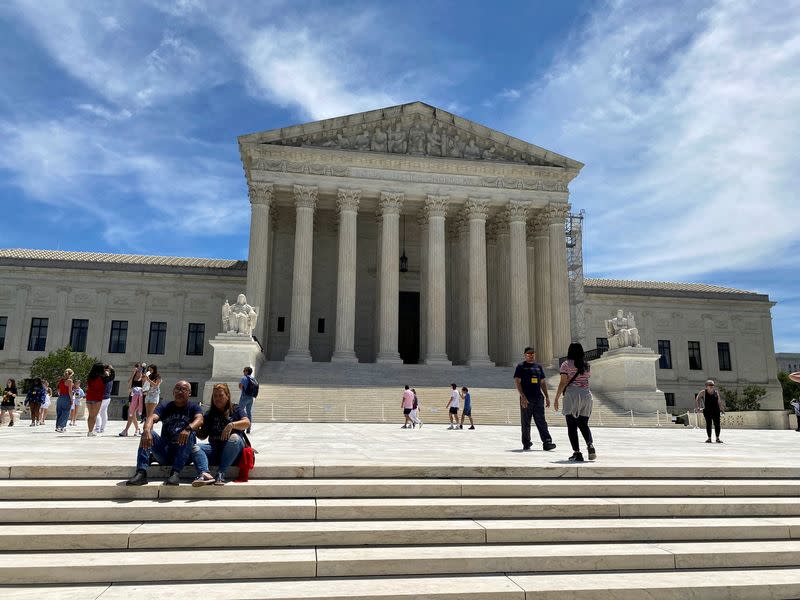US Supreme Court won't upend tax on Americans' foreign earnings

By Andrew Chung
WASHINGTON (Reuters) - The U.S. Supreme Court on Thursday ruled against a challenge to a tax on Americans who have invested in certain foreign corporations, issuing the decision at a time when some Democratic lawmakers are seeking to impose a wealth tax on the super rich.
The justices, in a 7-2 ruling, upheld a lower court's decision against Charles and Kathleen Moore - a retired couple from Redmond, Washington - who challenged the tax on foreign company earnings, even though those profits have not been distributed to shareholders.
The case also drew attention because some Democratic lawmakers had urged Justice Samuel Alito to recuse himself because of his ties to one of the lawyers for the plaintiffs. Alito refused.
The one-time "mandatory repatriation tax" (MRT) was part of a Republican-backed tax law signed former President Donald Trump in 2017. It applies to owners of at least 10% of a foreign company controlled by Americans.
At issue in the case was whether this tax on unrealized gains is allowed under the U.S. Constitution's 16th Amendment, which enabled Congress to "collect taxes on incomes."
The Moores, backed by the Competitive Enterprise Institute and other conservative and business groups, contend that "income" means only those gains that are realized through payment to the taxpayer, not a mere increase in the value of property.
The Moores were seeking a refund of nearly $14,729 in taxes that the law required them to pay as minority shareholders in a company in Bangalore, India, called KisanKraft that supplies equipment to farmers.
During oral arguments in December, some of the justices probed the limits of congressional taxation power over wealth, while others expressed concern that a ruling favoring the Moores could imperil a wider array of tax code provisions including those related to other business entities such as partnerships, limited liability companies and S-corporations.
The Justice Department had said that a ruling by the Supreme Court invalidating the mandatory repatriation tax could cost the U.S. government $340 billion over the next decade - and potentially far more if the decision invalidates other tax provisions as well.
Such a ruling also could thwart legislative proposals favored by some Democrats, including Senator Elizabeth Warren, for a tax on the net worth - meaning all assets and not just income - of super-rich Americans.
The case became enmeshed in the ongoing debate over the ethical conduct of the justices amid revelations about issues including undisclosed luxury travel funded by wealthy benefactors.
Democratic senators had urged Alito's recusal because David Rivkin Jr., one of the lawyers for the Moores, co-authored Wall Street Journal articles in which Alito both defended the court and argued that Congress lacks power to regulate the Supreme Court. Senate Democrats have pursued ethics legislation that would apply to the court.
The senators argued that Rivkin's access to Alito and his efforts to help him "air his personal grievances" cast doubt on the justice's ability to fairly judge the case.
Alito has said Rivkin's role in the articles was "as a journalist, not an advocate."
(Reporting by Andrew Chung; Editing by Will Dunham)
